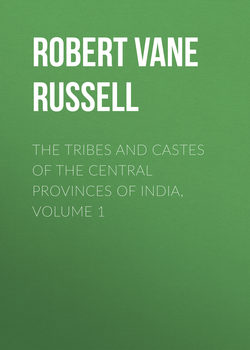Читать книгу The Tribes and Castes of the Central Provinces of India, Volume 1 - Robert Vane Russell - Страница 19
Part I.
Introductory Essay on Caste
Introductory Essay on Caste
16. Hypergamy
ОглавлениеThe detailed rules prescribed for the status of legitimacy and inheritance show that recognised unions of this kind between men of a higher class and women of a lower one were at one time fairly frequent, though they were afterwards prohibited. And they must necessarily have led to much mixture of blood in the different castes. A trace of them seems to survive in the practice of hypergamy, still widely prevalent in northern India, by which men of the higher subcastes of a caste will take daughters in marriage from lower ones but will not give their daughters in return. This custom prevails largely among the higher castes of the Punjab, as the Rājpūts and Khatris, and among the Brāhmans of Bengal.44 Only a few cases are found in the Central Provinces, among Brāhmans, Sunārs and other castes. Occasionally intermarriage between two castes takes place on a hypergamous basis; thus Rājpūts are said to take daughters from the highest clans of the cultivating caste of Dāngis. More commonly families of the lower subcastes or clans in the same caste consider the marriage of their daughters into a higher group a great honour and will give large sums of money for a bridegroom. Until quite recently a Rājpūt was bound to marry his daughters into a clan of equal or higher rank than his own, in order to maintain the position of his family. It is not easy to see why so much importance should be attached to the marriage of a daughter, since she passed into another clan and family, to whom her offspring would belong. On the other hand, a son might take a wife from a lower group without loss of status, though his children would be the future representatives of the family. Another point, possibly connected with hypergamy, is that a peculiar relation exists between a man and the family into which his daughter has married. Sometimes he will accept no food or even water in his son-in-law’s village. The word sāla, signifying wife’s brother, when addressed to a man, is also a common and extremely offensive term of abuse. The meaning is now perhaps supposed to be that one has violated the sister of the person spoken to, but this can hardly have been the original significance as sasur or father-in-law is also considered in a minor degree an opprobrious term of address.
44
See article on Brāhman for some further details.
